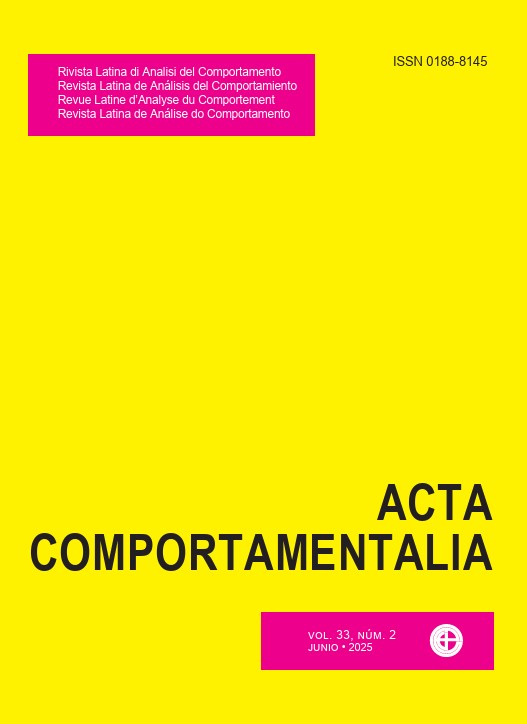An Interbehavioral Science of Sociocultural Relations as Referential Events
DOI:
https://doi.org/10.32870/ac.v33i2.88581Keywords:
culturo-behavior science, interbehaviorism, reference, sociocultural relations, metacontingencyAbstract
Culturo-behavior science is dominated by causal thinking. This is not necessarily problematic, but it is when considering sociocultural relations from an interbehavioral perspective. So far, the only major interbehavioral sub-enterprise within culturobehavior science is that based on the elaborated metacontingency model (EMM). However, mixing integrated field and causal contingency logic is not consistent with contemporary interbehavioral thinking, leaving culturo-behavior science without an interbehavioral framework for understanding sociocultural relations. The purpose of this paper is to describe how one can think about sociocultural relations interbehaviorally as referential events. In doing so, we will address (1) the sociocultural nature of referential events, (2) how to translate interlocking behavioral contingencies into integrated fields comprising two or more people interacting with respect to the same referent, and (3) advantages of developing a culturo-behavior science that is inclusive of interbehavioral thinking unconstrained by adherence to casual thinking. An interbehavioral approach to sociocultural relations may allow us to consider a wider array of events than the EMM or other metacontingency models orient us to. While metacontingency models are useful for helping us understand why sociocultural events persist, they are not specifically designed to help us understand their uniqueness. By contrast, in an interbehaviorist approach based in genuine referential events, such as those in which a referor refers a referee to a referent. Uniqueness can be better studied in this approach since the linearity of referring and being referred does not imply causation; factors of events refer to parts of events organized across space and time, not how one causes another. The referent is the stimulus object referred to (e.g., an object, event, or relation). Referents may be existent or nonexistent; people can refer to concrete referents that are perceived through a physio-chemical contact medium, just as they can refer to mere constructions that do not have corresponding existents in the environment. In this account, a group should be considered a network of people who regularly interact with one another in a conventional way. To say that referential events are conventional is to say that referors refer to referents in an arbitrary way that referees understand given a shared history of culturalization within the same group auspices (i.e., Response functions of two or more interacting persons are coordinated with stimulus functions of the same referential objective). In this sense, referential events can be understood as what is commonly called cultural or symbolic behavior. In conclusion, arguments about the epistemic value of referential events in a field perspective of cultural phenomena are offered, outlining an attempt at an interbehavioral science of sociocultural relations as referential events.
Downloads
Downloads
Published
How to Cite
Issue
Section
License

<a rel="license" href="http://creativecommons.org/licenses/by-nc-sa/4.0/"><img alt="Licencia de Creative Commons" style="border-width:0" src="https://i.creativecommons.org/l/by-nc-sa/4.0/88x31.png" /></a><br />Este obra está bajo una <a rel="license" href="http://creativecommons.org/licenses/by-nc-sa/4.0/">licencia de Creative Commons Reconocimiento-NoComercial-CompartirIgual 4.0 Internacional</a>.






